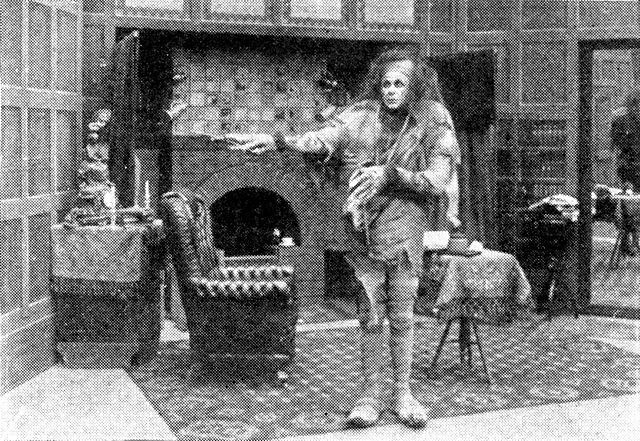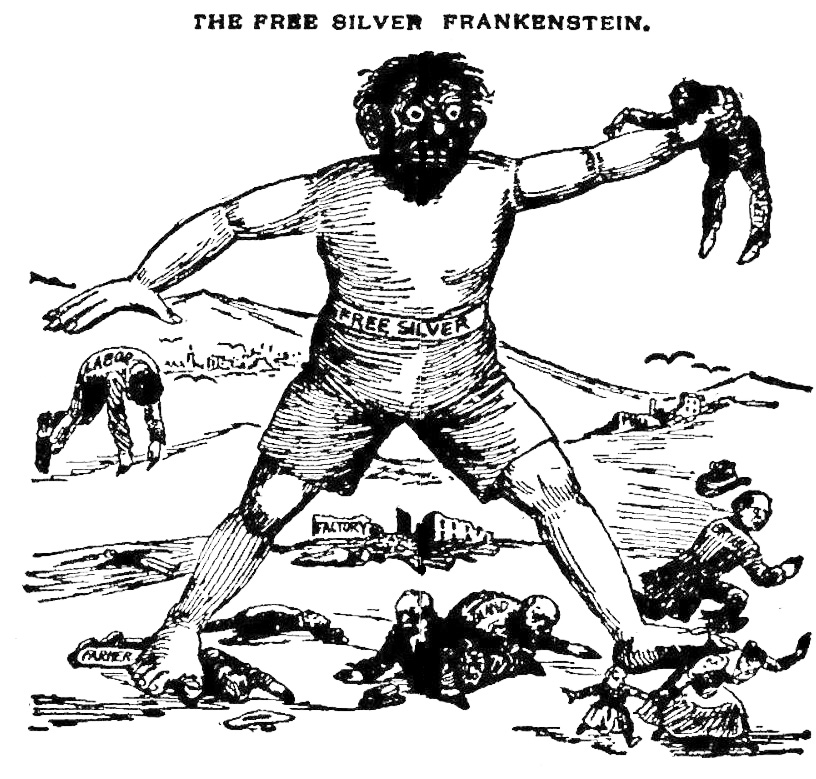.jpg)
My personal definition and understanding of this term "nonsense"
comes precisely from this: not being able to comprehend something with the senses because it has been lifted into an abstract space.
A lot of things are therefore meaningless for many people, and nowadays this often means a mental emotion rather than a physical one. But since I am bringing in the body emphasis, I would say: wanting to understand something without the senses is much more difficult than trying to understand with the senses. Let's just take the incomprehensible language of virology. Here, for example.
Do you understand even one sentence? Not me.
I have an honest contempt for this form of Gibberish.
Yes, I know, it can be seen as an inferiority complex and I can be told that I am accusing the discipline of being wishy-washy, whose language I do not understand because I have not been trained for it. True.
But my clients also demand that I express myself in such a way that they understand me in normal language. In doing so, I don't pretend to be smarter than them by unimagined dimensions, but rather I become aware of how much professional idiocy I first have to shed before I am able to speak something like normal mortal language.
This idiocy is not idiotic because I am a total idiot, but because I am limited beyond my own subject and could thus succumb to the seductive error that my subject stands on its own as if by magic and has nothing to do with the lifeworlds and subject worlds of others.

So, after reading, searching and thinking, here is what I personally decided to think about virology:
It's a (super-strong) myth.
Why do I say that? Because, when you question it, you will be shouted down or otherwise ridiculed. It's because you've touched a taboo.
In their search for the damaging factor, which the researchers had been doing over the course of time while studying the micro-organisms and wanted to know why living cells die and what could be the cause of this, they did something that has also been done in physics, for example: they gave a name to something that they did not know exactly how it looks and occurs. But from which they carried the expectation that it "kills".
Wiki says:
"Dark matter is a postulated form of matter that is not directly visible but interacts via gravity. Its existence is postulated ..."
In this way, a factor X was included in the consideration, of which certain things were assumed but not really known. Just as "dark matter" - as far as I understand - represents something inexplicable, researchers at the time held a "virus", i.e. a "toxin", responsible for the death of cells, although they could neither see, restrict nor isolate this toxin.
In principle, they were both right and wrong. Poisons are responsible for cell death. Interestingly, however, the researchers themselves were responsible for adding toxic substances that they introduced into a culture from the outside, but strangely did not consider them to be lethal.
This is a bit like giving a patient who has poisoned himself with alcohol further poison instead of pumping out his stomach to recover from the causative poison. Or else, letting him sober up and sleep until he recovers on his own.
Petri-Dishes do not represent life
As far as I understood the material I read correctly, the researchers had, for example, examined cell clusters in their Petri dish and were able to observe both living cells, cell residues and bacteria. But whether the cell residues or the dying cells seen in the dish died due to the bacteria present, this could not be recognised or "proven". Apparently not, because if bacteria were undoubtedly cell killers, then this process would have been observed as far as the size of the observable objects and the observation apparatus would have allowed.

The question that is often asked in this context:
Because something is currently present at the place of observation, is it at the same time causally responsible for the event?
What have researchers done to understand why living cells die? The thesis that something must be causal for this was, after all, in the room, otherwise one would not have wanted to look.
I take a cluster of cells. I put it on my Petri dish and then I continue my research with different substances. I take cells from monkeys, from wounds of rats, I mix these things with chemicals, just things that I can get hold of, for example, because they are delivered to me or are available in my laboratory, aren't they? I filter and I centrifuge.
Following what is known about Koch's postulates:
- I have a sick person from which I take a secretion
- I take a healthy person
- To this healthy person I inject something sick from the first person
- The healthy person then becomes ill
- I take the secretion from the sick person and give it to another healthy person who also becomes sick.
Then I have fulfilled the postulates.
Have I described this correctly in normal language?
By the way, what is "postulating"?
Wiki again:
denotes a principle for a discussion, a theory or a formal system that does not introduce new terms but cannot be derived from the given definitions.
Of course, the virologists speak of "isolation", but have they ever questioned whether Koch has fulfilled his own postulates or whether anyone ever did after that?
It is not even entirely clear whether the postulates themselves were formulated in this way by Koch and put into an order. One reads, for example, that a colleague is supposed to have written them down for him.
If the experiment is to be considered scientific, it must be carried out again and again in the same way and thus, as they say in this language, be "reproducible".
How can one "isolate" something, i.e. separate it out as a subject that causes illness - especially one that is considered contagious - when one speaks of a "dead substance", of a "toxin"?
When did the notion gained strength, that viruses "behave"?

How is this toxin supposed to reproduce itself if it is not alive? The cell, of which it is said that it behaves in such a way in its own multiplication process that it simply multiplies this toxin along with it.
hmm... I'm trying to imagine this with my senses. Because how else am I supposed to be able to follow this thing?
Why is such an accident assumed by the nature of the cell? Wouldn't it be more logical for the cell reproduction to get rid of unwanted substances that it cannot "use" during this process? But why should it multiply in such a quantity - over and over again - if there is only a limited quantity of a toxin?
But above all: how is it supposed to "jump" from one living organism to another?
Is centrifuging, filtering and handling chemicals, and further, encoding DNA - outside of living organisms - and arriving at a result about the same as kissing or having sexual intercourse? Nowadays, just breathing is enough to be afraid of "contagion".
In a dialogue on this matter, someone said to me:
The benefit of reproducing DNA is the reproduction of the cell that runs the machinery necessary for it, so far so good. A virus, however, is more likely to be reproduced inadvertently because the cell copies every DNA present in it and cannot differentiate between its own and viral genetic material.
If that were the case, what would ever stop this process in the body? If the cells were to take the so-called genetic information with them every time, then logically this would have to lead to certain death, because what could bring this process to a halt?
...ahhh, I know: the alleged armies of the so-called immune system. That's the first thought that comes to mind, isn't it? In the mind, however, you don't imagine something abstract, but always something concrete. The little soldiers who fight against other soldiers.
It's obvious how much ideology there is in this figurative idea alone, isn't it?
The premise is interesting, however, because it is assumed that the "virus" has its own DNA. How can something that is called "non-living" have its own DNA? A stone, for example, does it have DNA?
My previous unquestioned understanding of cell research is: our body cells are constantly renewing themselves. Is this view due to the many researchers who, instead of looking at cell death, have looked at their reproduction? I assume so.
However, the moment I say it like that, one might think that one cannot exist without the other. However, I would like to interject that the individual scientist may very well have a fascination and curiosity that pulls him in one direction or the other.
In the end, however, science does not know how cell renewal occurs in a living organism. It happens. This much seems certain.
Insofar as a scientist approaches his research with the vain inclination to discover something "unprecedented", to find a "cure for fatal diseases", one would in principle have to ask him some philosophical or psychological questions first, wouldn't one?
For more than a year now, I have been dealing with this topic more intensively than ever before.
I have always been a sceptical person when something has been dictated to me from the upper hierarchies or offered as true. However, this sceptical attitude has now deepened.
I have begun to doubt everything that was not worth questioning for me before.
This always involves such topics and statements where there is a high emotional component, but especially fear.
Just this morning at the breakfast table, I was talking with my husband and brother about how children learn to distinguish fermented or spoiled food from uncorrupted food, and later we came to mushrooms and other poisons that can be accidentally picked and consumed in nature.
Quickly, the topic of dying from them was on the table. And I shouted: "Stop! I think that's nonsense! People don't die that easily! I don't believe that you die immediately from toadstools or that you die straight away when you are stung by a scorpion! People don't die that quickly! If you eat or drink something bad, you'll get sick, very badly, but die right away?
These stories are totally exaggerated by now. It must be high doses if you get mushroom or other poisoning that can lead to death. Otherwise, our bodies are very well equipped to get rid of such things!
Wanting to play god
If it were so simple, if genetics were a ready-made and applicable discipline, why don't we have human clones running around? Why can't we breed animals by the thousands in the laboratory? Why haven't we done all this already, because the building blocks of life have long been researched?
For ethical reasons? HaHa! Certainly not. If it can be done, it will be done.
I think it is an insane and complete overestimation of modern man to create life himself and to want to recreate an evolution that is millions of years old, as if one were using a time-lapse like in a film. We all feel that when we see Frankenstein's monster resurrected, the untrue of the story is that the monster can be brought to life at all. We feel that this story is not to be understood literally, but contains a message in a figurative sense. That it is about the attempt to copy liveliness.
We laugh at the clumsy attempt of the mad scientist. Because in fact this image of the mad doctor's clumsy and reality-reducing action gives us the idea that such an existence as Frankenstein's monster only brings misfortune.
Why don't we laugh just as much at the attempts of the present to make us realise that genetics and the coding - a confusing language - that surrounds it is a cult?
Is it, because we act like these people in the experiment? Following the believing crowd, because it becomes dangerous not to do so?
Picture-Sources in chronological order:
By Universal Studios, NBCUniversal - Dr. Macro, Public Domain, https://commons.wikimedia.org/w/index.php?curid=3558176
By J. Searle Dawley - (1915-4-1). "Frankenstein". The Edison Kinetogram 2 (4). Orange, N.J.: Thomas A. Edison Inc.., Public Domain, https://commons.wikimedia.org/w/index.php?curid=2659118
By J. Searle Dawley; original uploader ru:Участник:БережнойСергей at ru.wikipedia.org - (1910-03-15). "Frankenstein". The Edison Kinetogram 2 (4). Orange, N.J.: Thomas A. Edison Inc.., Public Domain, https://commons.wikimedia.org/w/index.php?curid=5554488
By Anonymous - Fort Wayne Weekly Gazette October 29, 1896 p. 20, Public Domain, https://commons.wikimedia.org/w/index.php?curid=63599373
Good article, but I am sure viruses do exist. It doesn´t matter if they are considered living or dead, that´s an academic question. Fact is they trick their host by inserting their DNA into him.
That´s an actual picture of a phage virus. If it is not a virus, what else it should be?
Thank you:)
I don't know if it's a virus. If I follow what I have read in, for example, this paper here from Max-Planck-Institute, I more agree with the the statement that the virus theory could not be proven (read the introduction and page 57).
What I see in this photo looks like an insect with antennae. How can there be a physical image of a virus when it is said to be, for example, one billionth the size of a cell?
I myself have gotten really sceptic when things are dealt as "facts".
Very interesting article! Yes, without knowing anything about genes and replication the early virus researchers had no chance to come to a meaningful conclusion.
But still I think that the viruses are protein capsules with genes inside. This concept is - even if not fully proven - the only one that completely explains all observations, and besides we know the sequences of those genes and what they are doing (e.g. some are enzymes that replicate RNA, some are proteins for the capsules, some are responsible for invading the host cells).
However I highly appreciate your skepticism. By the way, there are types of microscopes which can resolve even individual atoms. Or this is maybe all fake? Hard to believe.
In order to "see" something so inconceivably small, I have the imagination that we humans would have to shrink ourselves to the size of an entity that fits on the tip of a pin a million times over. What kind of device can do that? What idea do you have of an atom?
For me, it can only be a linguistic one, a translation of what we are able to understand with our senses. The science which deals with the microscopical realm has developed since the modern age into an abstract science. I experience that it argues reductionistically, speaks in metaphors, because the observable space remains very restricted, if not closed.
I'll tell you this; Many people are coming out against the so-called "virus theory," and oh my, if this is true, they did a number on us. It reminds me of this quote.
"We'll know our disinformation program is complete when everything the American public believes is false."— William Casey, (CIA Director 1981)Yeah, I do think they did a number on us. I am having a hard time to believe in modern medicine (with exceptions) since I started to question my so far unquestioned view on parts of this world.
I like the quote. Thanks.
People are sometimes so innocent and absent minded. I sometimes wish I would be of the same mind set. It would help me to sleep better :) But then... I am having also really good times. No matter what madness goes around. Life is precious and can be so good when I stop thinking about it.
Did some labor work today. To balance things. Greetings to you!
"Life is precious and can be so good when I stop thinking about it."Very well said! -//- Be good to you!
Peace and blessings, erh.germany! 🙏
Nice said